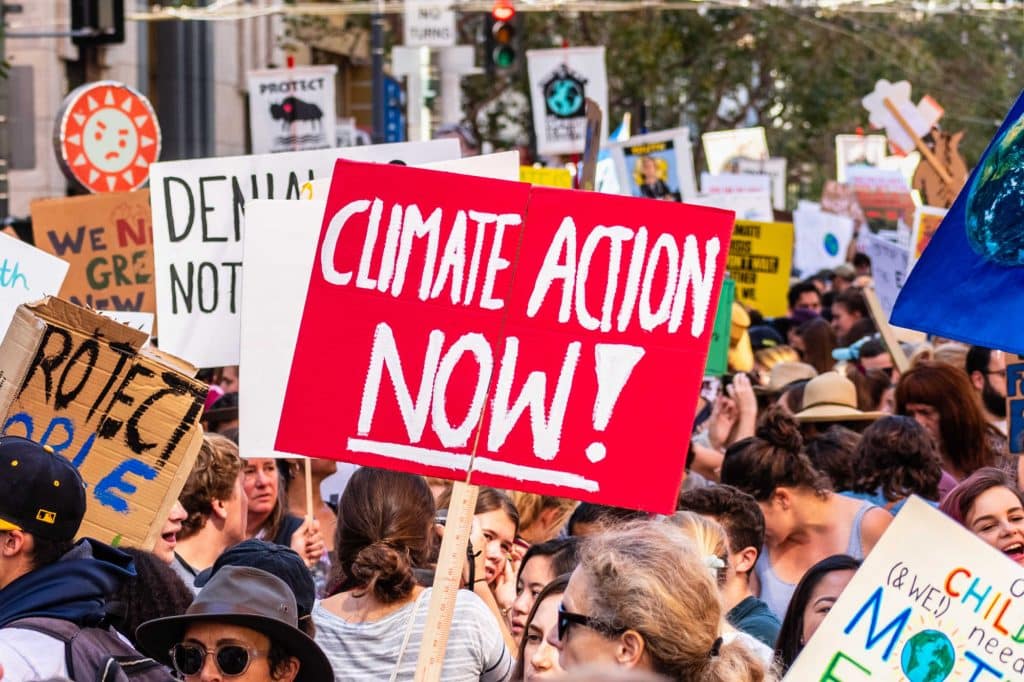Take Action to Stop The Rosebank Oil Field Going Ahead
To support the running costs of Moral Fibres, this post may contain affiliate links. This means Moral Fibres may earn a small commission, at no extra cost to readers, on items purchased through these links.
Feeling overwhelmed by the latest IPCC report? Here’s how to take action to help stop the Rosebank Oil Field from going ahead.
Every few years, the Intergovernmental Panel on Climate Change (IPCC) – the United Nation’s climate science body – produces a major report on the state of the climate crisis. On the 20th of March 2023, the Intergovernmental Panel on Climate Change published its most recent report. What it told us was that we need to halve global greenhouse gas emissions and we need to halve them immediately to help limit planetary warming to 1.5°C.
From the report, it is clear that global emissions need to peak by around 2025 and then plunge rapidly towards zero. However, just this month Rishi Sunak gave the go-ahead to create a new oilfield in the North Sea, known as Rosebank.
Quite a few people that I have spoken to said that the IPCC report has made them feel anxious and angry, and feeling helpless in the face of crisis. I say put those feelings to good use. Below I’ve set out concrete steps that you can take to oppose the Rosebank Oil Field.

How To Take Action on The Rosebank Oil Field
One way to show that you oppose the Rosebank oil field plans is to attend any in-person demonstrations. If none of these are accessible to you, there are still many ways that you can take action on the Rosebank plans:
Email Your Local Elected Official
Whether it’s your local Member of Parliament (MP), Member of the Scottish Parliament (MSP), or Member of the Senedd (MS/AS), writing to your local elected official is incredibly important. This lets them know that their constituents are concerned about these issues and holds them to account.
It’s easy to forget, but elected officials work for us. They are there to represent the views of their constituents in parliament. If they don’t know the views of their constituents, they can’t voice these views.
If you’ve never emailed your local elected official, then don’t worry, it’s really easy. The Write To Them website is a really useful resource. Simply pop in your postcode to find out who your elected officials are. You can then choose who you send your email to, and also send it directly via The Write to Them website.
Sample Letter To Your Local MP
A sample email to your local MP might look like this:
Dear [insert name of your MP here], I am writing to you as a constituent of [insert your constituency here] because I am concerned about climate change.
Through the publication of the IPCC Climate Change Report, climate scientists have stated that it is unequivocal that human influence has warmed the atmosphere, ocean, and land. What’s more, we need to halve global greenhouse gas emissions and we need to halve them immediately to help limit planetary warming to 1.5°C.
In order to meet the goal of keeping global temperature rises beneath 1.5oC, it is clear that we need a rapid transition away from fossil fuels. Rosebank Oil Field is not compatible with this rapid requirement to halve global greenhouse gas emissions to help limit temperature rises.
With extreme heat and record-breaking temperatures, deadly fires across Europe, the United States, and catastrophic floods in Europe, India, Libya, and China, this summer alone, we are already seeing the deadly effects of global heating. Therefore, with every fraction of a degree of heating that we can avoid, the more lives that can be saved. With this information in mind, allowing new oil exploration at Rosebank would simply be inexcusable and reckless.
On behalf of everyone in [insert your constituency here], I am directly asking you to champion policies in parliament that ensure that the Rosebank Oil Field does not go ahead. Can you please also reassure me that, as my local elected official, you will not support the Rosebank Oil Field exploration?
I look forward to hearing from you.
Yours sincerely,
[your name]
On behalf of [insert local organisation(s) if relevant]
Postcode
Feel free to copy and paste this template to email your elected official, or edit as you see fit. You can also share this text with friends and family, and encourage them to write to their elected officials too.
Sign Rosebank Oil Field Petitions
Signing Stop Rosebank Oil Field petitions is also a great way to add your voice to collective climate action.
There are a few going about right now. Greenpeace probably has the most authoritative petition. You can sign the Greenpeace petition to tell the UK government to reject plans for oil extraction in the Rosebank Field. Remember to share the petition with your friends and family, and encourage them to sign it, to help amplify its reach.
There’s good reason to sign. According to Paid to Pollute, oil and gas companies like BP and Shell have paid zero tax in the UK. Yet they have also received hundreds of millions in handouts from the UK Government. In fact, figures show that from 2015 to 2019 the UK government paid:
- Shell £374 million
- BP £675 million
- Canadian Natural Resources £584 million
- Exxon Mobil £458 million & £374 million
To repeat, UK taxpayers have paid oil companies millions to keep drilling for oil. Yet we have received nothing from the big polluters in those years.
Move Your Money
One of the lesser-known links to fossil fuel extraction is the link between fossil fuels and your bank account and pension scheme.
Bank Accounts
It’s really important to switch to an ethical bank. This is because the money that we deposit into our bank account doesn’t just sit in a vault until we need to withdraw it. Banks use the money that we deposit in our current and savings accounts to fund their other profit-making banking activities. From loans to investments, your money supports that.
It’s important to understand that the banks aren’t just investing their money, they’re investing our money that we deposit in our accounts. This means, depending on who you bank with, your money could be funding all sorts of projects that you don’t agree with and don’t necessarily know about. This could potentially include the Rosebank Oil Field.
Did you know that between 2015 and 2018 alone, the world’s biggest banks have invested $1.9 trillion into fossil fuel financing? Edie reports one of the UK’s worst offenders is Barclays. Barclays has reportedly provided £91 billion in funding to fossil fuel companies during this period. This includes companies involved in coal, tar sands, Arctic oil projects, and fracking, as well as the major players in the extraction and use of fossil fuels.
HSBC also contributed £67 billion to the fossil fuel industry over the same period. Meanwhile, Greenpeace also reports that both companies own shares in fracking companies.
Switching who you bank with is therefore vitally important, to divert money away from the fossil fuel industry. Check out my guide to ethical banking, updated for 2023. This gives you the full guide to the worst-performing banks and the most ethical banks.
Pensions
I haven’t covered pensions on the blog before, as it’s quite a tricky landscape. However, financial institutions also use your pension savings to fund fossil fuels. I’d recommend checking out Make My Money Matter for advice on how to green your pension.
If you know of any other campaigns that seek to stop the Rosebank oil field going ahead that need support, then please do share. You can also write to your MP about climate change in general – which is also always worth doing.
Found this post useful? Please consider buying me a virtual coffee to help support the site’s running costs.





Reading the above I have seen no viable option to phasing out fossil fuels responsibly. Possibly I’m wrong but nothing has been shown to me so far. I see multiple activist demonstrations where fossil fuels are burned irresponsibly to attend with no real outcome apart from disruption and more fuel burned unnecessarily.
People talk about wind power but realistically we are well over 20 years away from having wind power to cover part of what’s needed to keep the lights, heating and cookers on. There is also pharmaceuticals, clothes, synthetic lubricants, rubber etc. to consider the list goes on. All use crude to an extent.
Incidentally that’s also the average lifespan of a wind turbine before the plastic gets buried somewhere out of sight, and that doesn’t include spent lithium batteries which are stockpiled. To seriously want to change quickly there needs to be a viable option. We could move back to sailing ships, horse/cart for travel to reduce emissions if you want to switch off now. How would that work out globally.
Hi I can see your point although transition is the key. Understandably there is much focus on reducing emissions and temperature, and in an ideal world things could be reversed. However the environmental issue is global. All countries need to transition. Simply stopping oil and gas in one means we currently have to rely on more imports from countries who may not have the same concerns. As you said we are some way from full green energy and therefore it needs to be a transitional route and step back from fossil fuel reliance, which won’t happen overnight. The other thing that needs to be considered is the economy. Directly & indirectly the o&g industry in the UK supports over 100000 jobs. Going green does not support all these people in work and the country would be relying on fuel imports, increasing costs to the consumer and likely debt to the country.
If you don’t agree with the need to phase out fossil fuels through a just and fair transition, then I’m afraid that this isn’t the site for you.